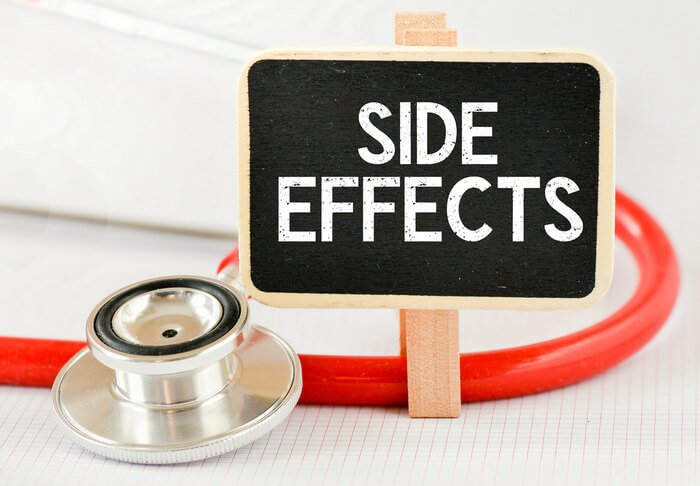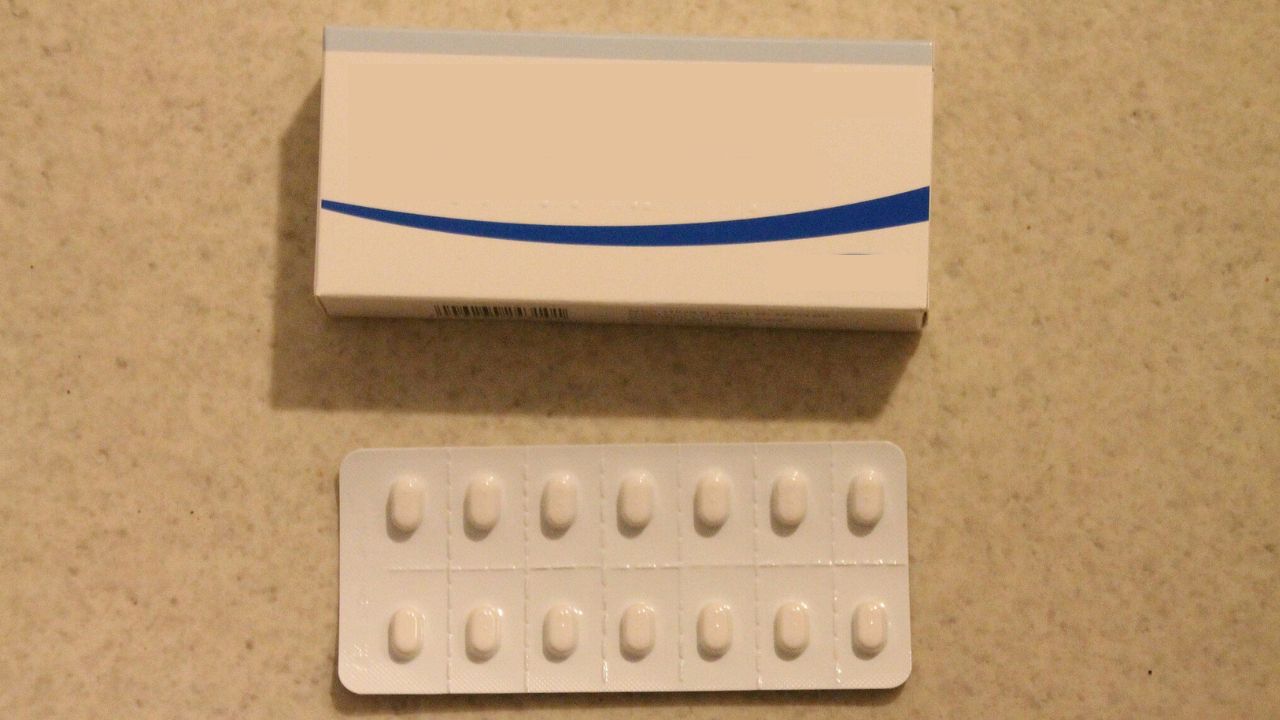Mirtazapine, a widely prescribed antidepressant, has become increasingly prevalent in treating depression and related psychiatric conditions in the elderly.
Seniors may be curious about the potential side effects that come with taking this medication.
This guide covers the potential side effects of Mirtazapine in the elderly.
Understanding Mirtazapine
This section will further explain Mirtazapine and the mental health conditions that may necessitate its use.
What is Mirtazapine?
Mirtazapine is a pharmaceutical medication classified as a tetracyclic antidepressant. It’s commonly prescribed to treat various mental health conditions, primarily major depressive disorder (MDD).
Unlike other drugs, which primarily target one neurotransmitter, Mirtazapine influences multiple neurotransmitters simultaneously.
This multifaceted action is believed to contribute to its effectiveness in managing depression and related symptoms.
Mirtazapine is available in different formulations, including oral and orally disintegrating tablets, making it accessible to more patients.
It may be taken to address other conditions like anxiety, bipolar disorder, insomnia, and certain eating disorders.
NOTE: Do not break or crush the orally disintegrating tablets before consumption.
How Does Mirtazapine Work?

Mirtazapine regulates mood and physiological functions by altering neurotransmitter levels in the brain. Here’s how Mirtazapine works:
- Serotonin and Norepinephrine Enhancement: Mirtazapine boosts mood and alleviates depression by increasing serotonin and norepinephrine in the brain.
- Alpha-2 Adrenergic Receptor Blockade: Mirtazapine quickly acts as an antidepressant by blocking alpha-2 receptors, boosting serotonin and norepinephrine.
- Histamine Receptor Blockade: Mirtazapine treats insomnia by blocking histamine receptors in the brain, causing drowsiness.
- Increased Appetite/Weight Gain: Mirtazapine can cause weight increase by increasing appetite through its influence on serotonin receptors in the hypothalamus.
Usage of Mirtazapine in Elderly Patients
Mirtazapine use in old patients requires close supervision by a qualified healthcare professional due to unique risks and considerations. Here are some critical points to understand regarding its usage:
- Treatment of Depression: Mirtazapine treats worsened depression, including MDD, in old patients by increasing serotonin and norepinephrine availability.
- Anxiety Disorders: Mirtazapine can treat anxiety disorders and depression in elderly individuals.
- Insomnia: Mirtazapine can help older patients with insomnia or sleep disturbances by inducing sleep at lower doses.
- Consideration of Side Effects: Mirtazapine can cause low blood pressure in older people. Doses should be lowered and closely monitored to prevent falls.
- Weight Gain: Mirtazapine may increase appetite and lead to weight gain, which should be carefully monitored in old patients who are at risk for weight-related health issues.
- Drug Interactions: Your healthcare provider must check for potential drug interactions with Mirtazapine in senior patients taking multiple medications.
- Regular Monitoring: Senior patients taking Mirtazapine should be regularly monitored for quick treatment response and side effects and to ensure their overall health.
- Caution with Cognitive Impairment: Use the orally disintegrating tablet cautiously in older patients with cognitive impairment or dementia, as it may increase their risk of falls, confusion, or trouble concentrating.
- Individualized Treatment: Evaluate older patients’ medical history, health conditions, and medication regimen before using Mirtazapine to tailor their treatment accordingly.
NOTE: Mirtazapine may cause some young adults to be uneasy, irritable, or display other abnormal behaviors. Young adults who take Mirtazapine may experience an increase in suicide risk, increasing the likelihood of suicidal thoughts and tendencies.
Mirtazapine Side Effects
Elderly individuals may experience an increased risk of certain Mirtazapine side effects reported from clinical trials, such as dizziness or sedation, due to age-related changes in metabolism.
Common Side Effects of Mirtazapine
Mirtazapine can cause side effects in some patients. Not everyone will experience them, but common ones include the following.
- Drowsiness: Mirtazapine is prescribed for insomnia because it causes drowsiness, particularly when taken at higher doses or before bedtime.
- Increased Appetite and Weight Gain: Mirtazapine can cause weight gain by increasing appetite through its effect on specific brain receptors.
- Dry Mouth: Some people may experience a dry mouth or a sore throat while taking Mirtazapine. Staying hydrated and using sugar-free gum or lozenges may help alleviate this symptom.
- Constipation: Mirtazapine can slow down bowel movements, leading to constipation. A high-fiber diet, increased fluid intake, and regular physical activity can help manage this side effect.
- Dizziness: Dizziness or lightheadedness may occur, especially when standing up quickly. This can be due to a drop in blood pressure, known as orthostatic hypotension (low blood pressure).
- Fatigue: Some individuals may experience fatigue while taking Mirtazapine.
- Nausea: Nausea is a less common side effect but can be avoided by taking Mirtazapine with food.
- Headache: Headaches are another possible side effect, typically mild.
- Changes in Sleep Patterns: While Mirtazapine is often used to improve sleep, it can also lead to changes in sleep patterns, including vivid dreams.
- Mood Changes: In some cases, individuals may experience mood changes or mood swings, which should be reported to a healthcare professional.
Rare Side Effects of Mirtazapine

Mirtazapine may have rare side effects. If you experience these effects, speak with a healthcare professional. Talk to your provider about any concerns. Side effects can include:
- Severe Allergic Reactions: An allergic reaction is rare, but seek prompt medical attention if you encounter signs like hives, itching, facial swelling, and difficulty breathing.
- Serotonin Syndrome: Serotonin syndrome is caused by excess serotonin in the brain, and taking Mirtazapine with other medicines raises the risk.
- Blood Disorders: Regular blood tests are necessary when taking Mirtazapine to monitor for blood disorders that can increase the risk of infections or bleeding. Increase your body’s supply of white blood cells. This drug can temporarily reduce the number of white blood cells in your blood, raising your chance of infection.
- Liver Function Abnormalities: Mirtazapine can increase liver enzymes. Monitor the liver health of patients with pre-existing liver conditions.
- Seizures: Seizures are a rare side effect of Mirtazapine. Individuals with a history of seizures may be at an increased risk, which should be discussed with a healthcare provider.
- Hyponatremia: Hyponatremia, low blood sodium levels, is a rare side effect. Symptoms include confusion, headache, nausea, and muscle cramps. Seniors are at increased risk.
- Urinary Retention: Rarely, Mirtazapine can lead to difficulty emptying the bladder, a condition known as urinary retention. This is more common in elderly individuals.
WARNING: If you have kidney problems or a family history of kidney disease, your body may be unable to properly process this drug. This may increase the amount of Mirtazapine in your body and cause more adverse effects.
Side Effects Specific to Elderly Patients

Mirtazapine can cause stronger side effects in older patients. Medical professionals should be mindful of the following side effects.
- Sedation and Drowsiness: Mirtazapine can cause daytime drowsiness and increase the risk of falls or accidents in elderly individuals, especially those with balance or mobility issues.
- Orthostatic Hypotension: Mirtazapine can cause orthostatic hypotension (low blood pressure) and hypovolemia (low blood volume) in old patients, increasing the risk of falls.
- Cognitive Impairment: Older adults taking Mirtazapine may face memory problems, confusion, or cognitive impairment. It’s vital to differentiate these side effects from dementia and consult a doctor.
- Urinary Retention: Mirtazapine can provoke urinary retention in older men with prostate enlargement, requiring medical attention.
- Bone Health: Mirtazapine use may reduce bone density in older adults, increasing fracture risk. Medical providers should monitor bone health and suggest changes to reduce the risk.
- Drug Interactions: When older patients take multiple medications of the orally disintegrating tablet, it’s crucial to watch out for possible interactions with other medicines.
- Hyponatremia: Mirtazapine use can make the condition worse in older people, leading to confusion and weakness due to electrolyte imbalances or low white blood cell counts. Mirtazapine may decrease your white blood cells resulting in a weakened immune system.
WITHDRAWAL WARNING: When you suddenly stop taking Mirtazapine, it can cause withdrawal symptoms. These withdrawal symptoms may manifest as headaches, nausea, general discomfort, or illness. Your dosage may gradually be lowered over time to avoid withdrawal symptoms.
Safety and Precautions
This section will cover how older patients can use Mirtazapine safely.
Drug Interactions with Mirtazapine
Mirtazapine’s effectiveness can be affected by other medicines. Medical professionals must check for drug interactions, and patients should disclose all the medications and supplements they’re taking.
Here’s an overview.
- Monoamine Oxidase Inhibitors (MAOIs): Avoid Mirtazapine with MAOIs. It can cause life-threatening serotonin syndrome. Examples of MAOIs to avoid are phenelzine and tranylcypromine.
- Serotonin-Norepinephrine Reuptake Inhibitors & Selective Serotonin Reuptake Inhibitors: Consuming Mirtazapine alongside SSRIs or SNRIs may cause serotonin syndrome and should only be done under close medical supervision.
- Linezolid and Intravenous Methylene Blue. Ingesting these drugs with Mirtazapine can increase your risk of serotonin syndrome.
- Other Antidepressants: Combining Mirtazapine with TCAs or bupropion increases sedation, dizziness, and anticholinergic effects.
- Central Nervous System Depressants: Combining Mirtazapine with alcohol, benzodiazepines, or certain antipsychotic medications can cause excessive drowsiness and impaired coordination. It’s best not to drink alcohol as it will tire you more.
- Cimetidine: Cimetidine, used to treat gastrointestinal issues, may increase Mirtazapine levels in the bloodstream. This can potentially intensify Mirtazapine’s side effects.
- Warfarin: When taking Mirtazapine and Warfarin together, dosage adjustment and close monitoring of clotting times are required due to potential interaction.
- Rifampin: Rifampin reduces the effectiveness of Mirtazapine. Adjust doses accordingly.
- Antifungal Medications: Certain antifungal drugs, like ketoconazole and fluconazole, can affect the body’s ability to process Mirtazapine, potentially leading to increased Mirtazapine levels in the body.
- Herbal Supplements: Inform your healthcare provider of any use of herbal supplement St. John’s Wort, as it can reduce the effectiveness of Mirtazapine in treating depression.
- Other Medicines: Inform your healthcare provider about all medications you take with Mirtazapine because it may interact with other drugs.
Precautions for Elderly Patients
When prescribing Mirtazapine for senior patients, special precautions should be taken due to age-related factors, potential sensitivities, and the presence of other health conditions.
- Start with a lower dose of Mirtazapine for older adults to decrease the risk of adverse effects.
- Gradually increasing the dose of Mirtazapine over time allows the elderly patient’s body to adjust to the medication.
- Monitor senior patients closely, especially during the first few weeks of treatment.
- To prevent falls, advise caution and slow position changes.
- Elderly individuals taking Mirtazapine should watch for changes in cognitive function and differentiate them from underlying cognitive conditions like dementia or bipolar disorder.
- Elderly Mirtazapine patients require regular check-ups to assess drug efficacy, adjust dosage, and discuss health changes.
- Healthcare providers should thoroughly review the patient’s medication regimen to identify potential interactions or contraindications.
- Medical professionals may consider bone density assessments and recommend supplements or lifestyle modifications.
- Personalized care plans that consider the individual’s medical history, current health status, and specific needs are essential.
- If the elderly patient has caregivers or family members involved in their care, it’s important to keep them informed about the treatment plan and potential precautions.
Monitoring and Reporting Side Effects
Monitoring and reporting Mirtazapine’s side effects is vital for safe and effective drug use. Medical professionals and patients both play critical roles in this process. Here’s how to handle it.
Healthcare Provider’s Role:
- Initial Assessment: Assess the patient’s medical history, current medications, and allergies before prescribing Mirtazapine.
- Baseline Evaluation: Assess the patient’s physical and mental health, mood, cognitive function, vital signs, and pre-existing medical conditions before starting Mirtazapine.
- Education: Providers must inform patients about Mirtazapine’s potential side effects during the first few weeks of therapy, including common and rare ones.
- Regular Follow-Up: Schedule follow-up appointments to monitor treatment progress, side effects, and patient response after initiating treatment.
- Dosage Adjustments: Adjust Mirtazapine dosage to minimize side effects.
- Open Communication: Tell your healthcare provider about any problems, side effects, or changes in your condition for better treatment.
- Assessment for Rare Side Effects: Medical professionals must watch out for rare but serious side effects and act promptly if they occur.
Patient’s Role:
- Medication Adherence: Take the orally disintegrating tablet as prescribed to ensure effectiveness and monitor negative reactions.
- Self-Reporting: Report any side effects or changes in your condition, including common ones like drowsiness, weight changes, and severe skin reactions (e.g., severe rash) promptly. Mirtazapine may cause serious skin reactions, including a drug reaction with eosinophilia and systemic symptoms (DRESS).
- Keeping Records: Record medication use, including date, time, and negative reactions, to discuss them with medical professionals during follow-up visits.
- Emergency Situations: In case of severe or life-threatening side effects like difficulty breathing, severe allergic reactions, or signs of serotonin syndrome (e.g., confusion, difficulty concentrating, or rapid heartbeat), patients should seek immediate medical help or call 911.
- Questions and Concerns: Patients should not hesitate to ask questions or seek clarification about their medication, negative reactions, or treatment plan. Understanding the medication and its potential drug effects is essential for proactive self-monitoring.
WARNING: If you have a record of specific heart problems, speak to your doctor about this medicine’s safety. These heart issues include angina (chest pain), heart attack, or stroke. Mirtazapine can induce low blood pressure, which can worsen pre-existing heart problems.
Benefits of Mirtazapine in Elderly Patients

Let’s discuss the benefits of using Mirtazapine.
Treatment of Depression and Anxiety
Mirtazapine is an effective treatment option for depression and anxiety in older adults, with several potential benefits. However, potential risks and side effects should be carefully considered.
- Efficacy in Depression: Mirtazapine effectively relieves depression symptoms in older adults by increasing serotonin and norepinephrine levels in the brain, improving mood, and reducing feelings of sadness and hopelessness.
- Anxiety Relief: Mirtazapine effectively treats anxiety disorders, including GAD, Social Anxiety Disorder, and depression. Its anxiolytic (anxiety-reducing) properties are particularly useful in managing anxiety that co-occurs with depression, especially in older people.
- Sedative Effect: Mirtazapine calms seniors with insomnia and sleep issues, indirectly improving mental health by promoting better sleep quality.
- Appetite Stimulation: Older patients with depression or bipolar disorder commonly experience weight loss and reduced appetite. Mirtazapine’s appetite-enhancing effect can help those who have lost their appetite or experienced unintentional weight loss due to their mental health.
- Low Risk of Drug Interactions: Mirtazapine, with its low potential compared to other antidepressants, can benefit senior patients managing multiple medications, allowing greater flexibility in treatment planning.
- Tolerability: Mirtazapine is generally well-tolerated in older adults due to its favorable side effect profile, and reduced gastrointestinal discomfort.
- Rapid Onset of Action: Mirtazapine’s faster onset of action may improve symptoms in some older patients within the first few weeks of treatment.
Role in Insomnia Management
Mirtazapine is an effective medication for managing insomnia in old patients, providing several benefits to address sleep disturbances in the elderly.
- Sedative Properties: Mirtazapine is a fast-acting medication used to help elderly individuals with sleep difficulties due to its sedative effects.
- Improved Sleep Quality: Mirtazapine can enhance sleep quality in old patients by increasing the duration of deep, restorative sleep stages, resulting in more restful and refreshing sleep.
- Reduced Nighttime Awakenings: Mirtazapine can help reduce nighttime awakenings in senior patients with insomnia, promoting uninterrupted sleep and reducing fatigue and sleep deprivation.
- Combination Therapy: Mirtazapine can treat insomnia either alone or with other medications, allowing for tailored treatment of senior patients.
- Low Risk of Dependence: Unlike some sleep medications, Mirtazapine has a lower risk of dependence or addiction. This is especially important in the elderly, as dependence on sleep medications can lead to complications.
- Reduced Anxiety: Anxiety and worry about sleep can exacerbate insomnia. Mirtazapine’s anxiolytic properties can be helpful in calming anxiety related to sleep difficulties.
Frequently Asked Questions
Learn more about the potential side effects of Mirtazapine in older patients here.
Can Mirtazapine Be Used in Elderly Patients?
Yes, Mirtazapine can be used in old patients to treat depression, anxiety, and insomnia under the supervision of a healthcare provider.
What Are the Common Side Effects of Mirtazapine?
Common side effects of Mirtazapine may include drowsiness, increased appetite and weight increase, sore throat, constipation, chest pain, suicidal thoughts, and low white blood cell counts.
How Does Mirtazapine Work in Elderly Patients?
Mirtazapine boosts serotonin and norepinephrine to alleviate depression, anxiety, and insomnia in older patients.
What Precautions Should Be Taken While Using Mirtazapine in Elderly Patients?
Precautions when using Mirtazapine in senior patients include the following.
- Starting with a low dose
- Monitoring for side effects like sedation and orthostatic hypotension
- Assessing cognitive function
- Reviewing potential drug interactions with other medications they may be taking
What Are the Benefits of Mirtazapine in Elderly Patients?
Some of the benefits of Mirtazapine in senior patients include:
- Its efficacy in treating depression, anxiety, and insomnia
- Its soothing properties for better sleep, appetite stimulation
- Relatively low risk of drug interactions
Conclusion
It’s vital to thoroughly understand this medication’s impact on older adults before considering taking it.
Mirtazapine effectively treats depression, anxiety, and insomnia in older patients when used carefully, improving their quality of life.
To promote the well-being of our elderly population, healthcare providers, caregivers, and patients should take prudent precautions while using and prescribing Mirtazapine.



